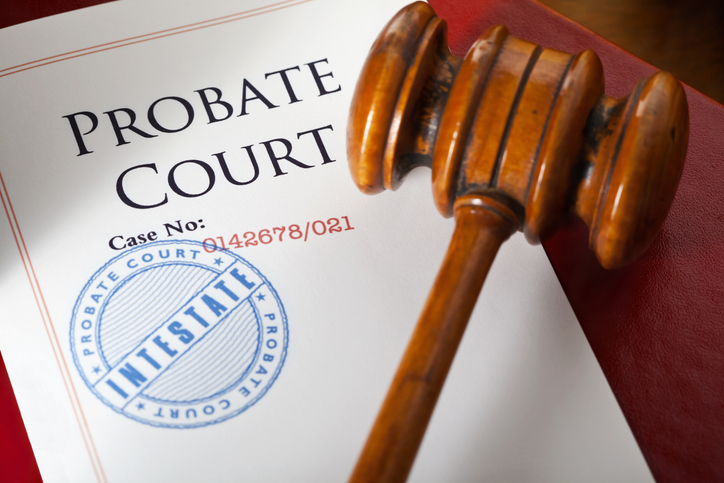The process of going through probate can incur fees and other expenses, which can impact the estate’s value. Knowing how much probate costs in Utah can help executors, administrators and beneficiaries plan and manage the estate. Or, if you’re setting up an estate, maybe you decide to explore options that will help your heirs avoid probate. Understanding different fees and expenses can help you or a loved one make financial decisions and avoid unexpected surprises during a difficult time.
Are you looking to set up an estate for your heirs, or have other estate planning questions? Consider reaching out to a financial advisor.
How Much Does Probate Cost in Utah?
How much probate costs in Utah depends on court fees, attorney fees and other expenses, which vary based on the complexity and size of the estate. The following is a rough estimate of what you can expect:
- Court fees are paid to the court for submitting probate paperwork and managing the estate proceedings. In Utah, the initial filing fee is $375, with potential additional fees based on the estate.
- Attorney fees are paid to the probate attorney, if you choose to hire one. In Utah, attorney fees can be billed at an hourly rate, typically between $200 and $500 per hour, or at a flat rate, usually between $1,500 to $2,000 (more complex cases can cost $5,000 or more). Probate attorneys in Utah are not typically paid a percentage of the estate.
- Executor fees are paid to the executor, also known as the personal representative, as compensation for their services. In Utah, this fee is generally determined by the estate’s complexity and size, often ranging between 2% and 5% of the estate’s total value.
- Additional costs can include appraisal fees, costs for public notice publications, and fees related to asset management or liquidation.
Utah also offers a simplified probate process for smaller estates, which are those valued under $100,000. This simplified process is called “summary administration,” and is faster and less expensive than formal probate.
The Probate Process in Utah

The probate process in Utah involves six general steps to ensure the proper administration of the estate:
- File a petition for probate: The executor files a petition with the court to open probate and appoint a personal representative. In doing so, they’ll also submit the deceased’s will, if there is one.
- Notify heirs and creditors: The executor (also called the personal representative) is responsible for notifying heirs and creditors of the estate. This includes sending notices and publishing a notice in a local newspaper.
- Inventory and appraisal of assets: The personal representative must also conduct an inventory of all estate assets and obtain appraisals if necessary. This helps determine the total value of the estate.
- Pay debts and taxes: The personal representative will then use funds from the estate to pay any outstanding debts and taxes that are owed, including both state and federal obligations.
- Distribute assets: After all debts and taxes are settled, the executor is responsible for distributing the remaining assets to beneficiaries according to the will, or state law if there is no will.
- Close the estate: Once all duties are completed, the personal representative will need to file a final account with the court and request to close the estate. The court then reviews and approves the closure.
Frequently Asked Questions About Probate Costs in Utah
Do I Get Paid for Serving as a Personal Representative?
Yes, personal representatives are entitled to compensation for their services. In Utah, the fee is usually a reasonable amount based on the estate’s value and the complexity of the work involved. It is often around 2% to 5% of the estate’s total value.
What Happens If Someone Objects to the Will in Utah?
If someone objects to the will, it can complicate and extend the probate process. The court will schedule a hearing to consider the objection, during which evidence will be presented, and witnesses may be called. Resolving disputes can take additional time and increase the overall cost of probate.
How Long Does Probate Take in Utah?
The duration of probate in Utah can vary widely. Simple estates may be settled within a few months, while more complex estates can take a year or longer. Factors such as the estate’s size, the completeness of documentation and any disputes among beneficiaries can affect the timeline.
Bottom Line

Understanding how much probate costs in Utah can help you manage or benefit from an estate, and prepare for the financial and administrative responsibilities that come with the process. Considering state-specific rules and regulations can also help streamline the process and reduce costs.
Estate Planning Tips
- Consider whether a trust should be part of your estate plan, along with a will. Assets transferred to a trust aren’t subject to the probate process. A financial advisor can offer advice on whether a trust is right for you and which assets you might want to hold in the trust. Finding a financial advisor doesn’t have to be hard. SmartAsset’s free tool matches you with financial advisors who serve your area. You can interview your advisor matches at no cost to decide which one is right for you. If you’re ready to be matched with local advisors that will help you achieve your financial goals, get started now.
- You can minimize the chances of your own will being challenged after you pass away by working with an estate planning attorney to draft one. Your attorney can go over the state inheritance and will laws to make sure the document you create is legal and as immune from challenge as possible.
Photo credit: ©iStock.com/stocknshares, ©iStock.com/stocknshares, ©iStock.com/imtmphoto
